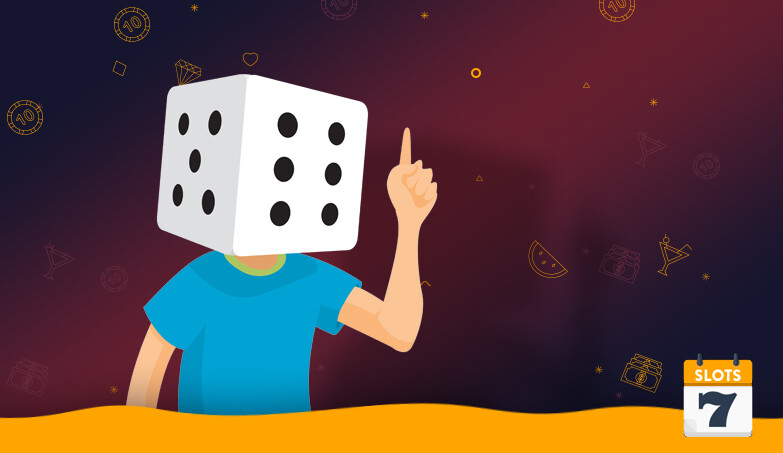The line between casual, fun gambling and pathological gambling isn’t fine; it’s a huge gap which some are inclined to breach while others stay far away from it. It’s not about “why do people gamble” because there are several reasons for that and they can be positive, it’s about impulse control.
Studies suggest that problem gamblers are the ones who are unable to resist their impulses, and this can lead to severe consequences. Their urge to gamble keeps increasing, and the only way they think can relieve this stress is to keep gambling, bet more and go deeper.
Those who are afflicted with this issue are often unaware of their problem, or in denial. That’s why the first step to kicking the addiction is admitting that there is a problem. Unfortunately, for some gamblers, they only accept the existence of an issue when they reach rock bottom.
If in the past problem gambling was seen as a compulsive disorder, now after several more studies, it’s seen as an addiction disorder.
Much like with alcohol or drug addictions, gambling addictions are not just treated similarly, but they are also considered chronic disorders which may cause a relapse. However, with the right treatment, even awful cases of problem gambling can be bettered, and the gambler can once again gain control over his life.
The Psychology of Gambling Addictions – Symptoms
Most people only gamble occasionally, but a pathological gambler will transform occasion into habit. The gambler will start risking more and betting bigger or more often, which can lead to personal problems and financial problems.
In order to get an accurate representation of things, recurrent problematic behaviour must be observed. You know there’s a problem if a player exhibits four or more of the following items over 12 months:
- Needs to gamble with more and more money to keep getting excited.
- Is restless or irritable when trying to stop gambling or reduce the frequency.
- Has made several unsuccessful efforts to control, reduce or stop gambling.
- Is continuously thinking about gambling
- Often gambles when feeling bad (anxious, depressed, in a bad state of mind, etc.).
- After losing money will keep playing or even come back the next day and keep chasing loses.
- Lies and tries to hide the extent of his involvement with gambling.
- Has jeopardised or even lost a relationship, job, opportunity etc. because of gambling.
- Often relies on others to get money to get out of desperate financial situations caused by gambling.
- The gambling behaviour is not (better) explained by a manic episode.
Scientific data about problem gamblers
While there are many interesting facts about gambling addiction and the industry in general, there are several others to consider:
- Gambling addiction affects 1-3% of adults of all ages. Generally, it affects men more often than it affects women. For men, it usually starts in adolescence, while it happens in later life for women.
- Those who have pathological gambling behaviour often have problems with alcohol and drug abuse, depression, and anxiety.
- They tend to have personal, financial, and legal problems, going as far as bankruptcy, divorce, loss of a job, prison time, and in rare and extreme cases suicide or death.
- Gambling disorders develop over the years, and the progression seems to be more rapid in females than in males.
- Most players with gambling disorders have issues with one or two types of gambling, while others participate in many forms of gambling.
- The sums of money wagered are not a clear indicator of a gambling disorder. Some players can bet huge sums per month and not have a problem, while others cam wager much smaller amounts but have gambling-related difficulties.
- A gambling disorder can be persistent or in remission. It can also increase when under stress, during periods of substance use or abstinence, or when afflicted by depression.
- Gambling disorders are more common among younger as well as middle-age people than among older adults.
- The number of individuals who seek treatment for gambling disorders is low for all age groups, but younger individuals are most unlikely to seek treatment.
- Women with a gambling disorder are more likely than men with gambling disorder to have depressive, bipolar, and anxiety disorders, but they seek treatment sooner.
Treatment for Compulsive Gamblers
Prevention would be the best option, but it might not be possible in some cases. In this day and age, it’s very easy to get access to online casino gambling, mobile gaming, sports betting, brick and mortar casinos and every other type of gambling.
Early intervention is vital as it stops the progression and keeps gamblers from having an even worse problem. Compulsive gambling can be treated. The first step is to recognise that you, a friend or a family member might have a problem.
After that, there are two courses of action. The first one is to get into therapy or support groups. Psychotherapy can help. A 12-step Gamblers Anonymous program that’s similar to the abstinence programs for substance and alcohol abuse has shown promising results in some individuals.
Another option is to combine psychotherapy with medication. Some individuals might need antidepressants, mood stabilizers, opioid antagonists, or narcotic antagonists. This depends on other existing conditions and should only be considered an option after consulting with specialists.
Gambling Addiction Facts and Statistics
- Gambling is a billion dollar industry. Only in the USA, gambling has become an industry that rakes in over $40 billion dollars a year.
- Gambling generates more revenue than if you were to combine the revenue from movies, sports, theme parks, cruise ships and recorded music.
- Estimations show that around 80% of the US population has gambled through the course of their life. This can be extrapolated to other countries as well, as the UK, Australia and other countries historically have similar numbers.
- While huge numbers of both men and women gamble, men are more likely to develop a gambling problem than women are.
- While some people will blame gambling problems on the game itself (lotteries, casinos games, racetracks, slots etc) and how easy it is to find where to play them, it’s actually not the games that are the issue, but a person’s compulsive gambling, his inability to control habits. In fact, there are a lot more people who casually gamble than people who have a compulsion.
- Pathological gamblers are more likely to have mental health disorders or substance use disorders, or both.
- There was a research study that found that out of the players who faced a gambling addiction, 75% had an alcohol disorder, 38% had a drug use disorder, and 60% were nicotine dependent.
- Furthermore, 50% of gamblers have experienced a mood disorder, 41.3% an anxiety disorder, and 60.8% a personality disorder.
- Out of all casino games, 68% of the people choose to play slot machines most often.
- Compulsive gambling is not connected to being weak or less intelligent. Many players who have become problem gamblers are successful people and are seen by others as being strong and intelligent.
Unusual, Ironic or Funny Gambling Facts & Stories
- In order to stop people living in a village in India from engaging in excessive alcohol use and gambling, a man taught everyone about 50 years ago how to play chess. While gambling and alcohol use are at an all-time low, the villagers are now addicted to playing chess.
- In an argument between a husband and wife about gambling, the wife bought a scratch-off lottery ticket in order to prove to her husband that it was a waste of money. In a twist of fate, she ended up winning $1 million.
- When FedEx was just starting out, CEO Fred Smith took the company’s last $5,000 to Las Vegas hoping to cover the company’s $24,000 fuel bill. He won $27,000 gambling on blackjack.
- Gambling for cash money is illegal in Japan. So gamblers win balls which are then exchanged for prizes or tokens. These items can then be exchanged for cash at a separate place.
- In 1992, an Australian gambling syndicate bought almost all possible combinations in a Virginia lottery and won. They made a $5 million purchase and got $27 million in winnings.
- In Finland, all gambling is controlled by the government, and all profits go to charity.
- Russia outlawed all gambling in 2009 so a Russian engineer learned how to cheat slot machines. He went to the U.S. and used his knowledge to win $21,000.
- A Greek-American gambler, Archie Karas (Anargyros Nicholas Karabourniotis), went to Las Vegas with $50. He gambled it up to $40 million over the next two years and then he lost it all in three weeks.
- Of all nations, Australians lose the most money per capita to gambling.
- In 2014, the anti-gambling agency of Singapore wanted to use the chaos of the World Cup in order to draw attention to how gambling is wrong. They published an ad that showed a worried kid who was telling his friends that his father bet all their life saving on Germany winning the World Cup. Lo and behold, Germany won.
- Brian Zembic was known as someone who would agree to any bet and dare. He made a bet with a friend for $100,000. To win, he had to get breast implants and keep them for a year. Not only did he win the bet, but 20 years later he still has the implants.
- Gambling sites and betting sites are better at predicting results of elections than polls are.
- A British gambler sold everything he owned and bet $135,300 on red for a single spin of a roulette wheel in Las Vegas. The UK player won.
- In 2015, Tayla Polia against 20,000-to-1 odds, won on an NFL parlay. Her $5 became $100,005.
- The state of Florida accidentally banned smartphones and computers when trying to ban gambling internet cafes.
Conclusions
The research done until the release of this article shows that pathological gamblers and drug addicts have many of the same genetic predispositions. Both categories have poor impulse control and will need something stronger each time to get “high”. Furthermore, they both have symptoms of withdrawal when separated from their object of desire.
Some individuals are vulnerable to drug addiction, compulsive gambling and other risky behaviour at the same time. That’s because their reward circuitry is underactive, and they feel the need to seek big thrills.
If there’s one thing that you need to understand from this is that if you have a problem, it doesn’t mean that you are weak. Humankind doesn’t yet have the capabilities to test everyone in many different ways to establish what their impulse control is like and if they are more likely to become addicted to something (be it casino games, sports betting, alcohol, drugs, food, cigarettes and others).
What you can do is think about yourself and your general behaviours and look for patterns. If you feel like you could be the type of person that easily gets addicted to something, you’re better off not trying to gamble in the first place.
If you decide to gamble, you must try your hardest to practice responsible gambling and use all the information and help available to you to make sure you’re making the right choices.
If at any time something changes, seems off or you (or family members or friends) start to think you might have a problem, please take action right away and seek help.

 Free Slots
Free Slots








